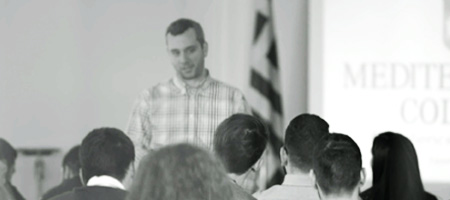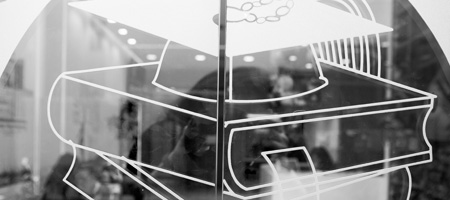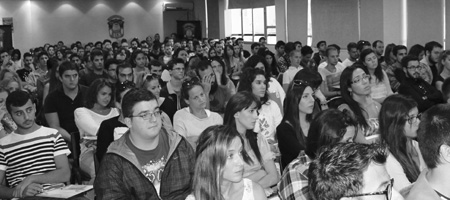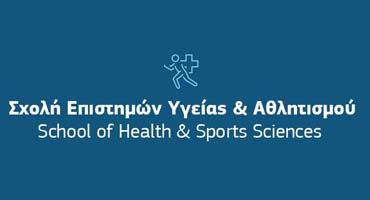




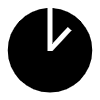
BSc (Hons) Sports Science and Coaching
-
No1 in Greece | TOP30 in the UK.
-
Professional recognition & accreditation.
-
Practical training & labs.
-
Strong links with the sports industry.

Course Information
The BSc (Hons) Sports Science & Coaching has been designed by Mediterranean College and the University of Derby, a TOP30 UK University, according to the Guardian University Guide 2020. It is the only four-year BSc degree in Greece (240 ECTS), that combines Sport Science, Physical Education & Sports Coaching, being mapped against the Greek state university curriculum to ensure professional recognition.
The programme is designed to offer a combination of theoretical and practical knowledge to prepare you for different roles in the industry, such as physical education teacher, well-being trainer or elite athlete/ sports club coach.
You will benefit from the strong links with our industry strategic partners, that comprise premium sports clubs (such as Olympiakos and PAOK) and all major professional athletes’ associations (such as PSAP – Footballers Association, PSAK – Basketballers Association, etc.)
What you will study
The BSc (Hons) Sport Science and Coaching programme provides you with a comprehensive understanding of Sports & Exercise Science and Physical Education. Should you like to pursue that line of career, the programme, also prepares sports coaches, able to train from early-age students to high-profile athletes.
Your focus will be on the following:
- All key scientific areas of Sports Science (Anatomy, Physiology, Psychology, Biomechanics, Research Methodology), as set by the British Association for Sports & Exercise Sciences (BASES).
- Principles and practices of Physical Education, that will improve your sports teaching skills.
- Sports Coaching, through bespoke coaching skills development modules, that will eventually allow you to specialise in your chosen sport and apply coaching techniques to populations with special needs.
- Contemporary modules that provide a rounded, scientific perspective to the course, such as Sport Performance Analysis, Sports Nutrition, Injury Rehabilitation and Sports Medicine.
A key component of the course is the theoretical & practical training in all major sports, such as athletics, aquatics, mass sports, team sports, martial arts. The course will give you the opportunity to focus on a sport of your choice.
Why choose this course
- The degree is awarded by the University of Derby, a TOP-30 UK University (Guardian University Guide 2020).
- It provides 240 credits (ECTS), to be professionally equivalent to degrees awarded by Greek State Universities.
- It combines Sport & Exercise Science, Physical Education and Sports Coaching.
- It is designed according to the professional standards of the British Association of Sports & Exercise Science (BASES).
- You are trained in all mainstream sports, while having the opportunity to specialise in a sport of your choice.
- Your practical training takes place in collaborating settings, such as the Olympiacos and PAOK sports centers and the Panellinios Athletics Club.
- Your lab sessions take place at our in-house facilities as well as in partner, high-end laboratories of sports performance and rehabilitation centres.
- You benefit from multiple networking opportunities, through our strong links with industry: leading sports clubs and academies, athletes’ associations, and sports performance centres.
- You become a bilingual sports professional, with exceptional academic and career prospects.
Teaching and learning is a combination of theory and practice on campus and at collaborating sports settings. Your learning will be further enhanced by guest lectures and masterclasses, field trips and observation in schools and sports events, participation in academic conferences. We use a broad variety of assessment methods, such as independent or group work, presentations, observation logs, practical exams in the field/ in the lab, and poster presentations. A small part of your modules will be assessed by written exams or tests and quizzes. Independent study in the last year will give you the opportunity to specialise in a field of your preference.
Courses
Year 1
Academic and Applied Skills for Sport and Exercise
This module is taught in two parts: Academic skills and research skills. The academic skills component provides students with grounding in the key skills needed to be successful at undergraduate study; including, literature searching, literature review, academic writing, referencing, and presentation skills. The research skills component gives students an introduction to qualitative and quantitative research methods, including descriptive statistics. Students will learn how to collect and interpret data using a range of approaches including questionnaires, interviews and experimental methods. The emphasis on the module is to develop student’s confidence in engaging with academic literature including the associated terminology.
Introduction to Anatomy for Sport and Exercise
This module provides students with a theoretical understanding of human anatomy. The module considers the human body in action and aims to introduce students to the integrated function of anatomical systems during physical activity and exercise. The module will incorporate both theoretical and practical elements to ensure students are given the appropriate opportunity to develop their knowledge and understanding of anatomy within an applied context.
Principles of Sport and Exercise Psychology
The role of psychology is an increasingly important and recognised aspect of participation and performance in sport and exercise contexts. This module examines various personality and social-psychological factors that impact upon participation and performance. The module offers a range of sport and exercise psychology topics focusing on three main areas: 1) Individual participants in sport and exercise, 2) Strategies for performance enhancement, and 3) Groups, group processes, and intergroup relations. For each topic, theories and research evidence are applied to practical examples.
Coaching and Skill Acquisition
This module will focus on the application of skill acquisition theories in the coaching practice. Students will develop an understanding of how principles such as feedback, attentional focus and the environment can inform session design and delivery; with the view to enhancing both athlete learning and performance. Student’s practical skill development will centre upon their ability to enhance performance through the application of skill acquisition principles. Students will be taught via a variety of lectures and seminars as well practical coaching sessions.
Principles of Sport and Exercise Physiology
Knowledge of how the different parts of the body function during physical activity is necessary to understand how humans can take part in sport and exercise. This module examines the basic physiology of the relevant body systems. What these systems consist of, how they function and how they respond to an acute bout of physical activity will be considered.
Physical Education Theory and Practice
The module is designed to give students an understanding of the concepts and application of physical education. The module will examine a range of physical education topics focusing on four main areas: 1) sport pedagogy 2) teaching physical education 3) growth and development 4) equality, diversity and inclusion. For each topic, theories and research evidence are applied to practical examples. This module will also provide students with the opportunity to develop themselves in their teaching, planning and communication skills with particular focus on the application of pedagogical theory and teaching methods.
Intermediate English
The module provides students with a thorough and detailed understanding of the English language (intermediate level). Students will have the opportunity to demonstrate an improved performance in both written and oral English through the use of in-house intermediate level resource packs.
The module aims to raise students’ general English level by improving students’ accuracy and fluency when writing and speaking and developing their listening and reading comprehension skills. These modules also provide an introduction to academic writing skills as well as to discipline-specific terminology and literature.
Year 2
Research Methods for Sport and Exercise
Students will conduct a systematic literature review in a topic area related to their degree, in order to develop a coherent research question. Particular emphasis will be given to developing a robust rationale for the research question proposed based on a critical review of existing literature. Furthermore, students will propose a research methodology based on the rationale developed. The overall focus of the module is on the process of “doing research”, and this will reflect in the delivery methods used. As such, students will be encouraged to explore the suitability different methodologies with respect to the research question asked. There will be the opportunity within sessions for students to critically review literature, and peer review research proposals. In addition to developing a research rationale and design for a proposed research project, students will undertake a range of in-class assessed qualitative and quantitative data analysis tasks using SPSS, including inferential statistics.
Sports Coaching Theory and Practice
The module will enable a student to develop a knowledge and understanding of the skills and techniques of sports coaching. It will involve both the theory of the coaching process and put this into practice by applying the skills.
Principles of Sport Biomechanics
The purpose of this module is to introduce students to an area of study that is concerned with the internal and external forces acting on the human body and the effects of these forces on sports performance. Students will develop knowledge and understanding of mechanical principles and laws as they relate to the study of human movement and sports performance.
Physiological Assessment for Sport, Exercise and Health
This module explores the methods available to assess the function of the biological hardware relevant to sport, exercise and health. Building on core knowledge acquired at Level 4, this module considers how we can measure the physiological capacity of an individual. There will be a strong emphasis on understanding theory and gaining practical experience. Students will become acquainted with numerous methods which are used in a range of different contexts.
Strength and Conditioning
Strength and conditioning specialists or coaches help athletes to maximise athletic performance, reduce injury risk and avoid overtraining. This module builds on the scientific principles and applies them to this interdisciplinary and practical subject area. Students will study applied biomechanics and physiology within the context of strength and conditioning and learn to develop periodised, safe and effective evidence-based sport specific training programs. Where appropriate, key nutritional strategies to support training methods will be introduced.
Sport and Exercise Psychology
This module provides an overview of various sport and exercise psychology topics at an intermediate undergraduate level. The significant role of individual characteristics and social processes when designing interventions to enhance sport performance and exercise participation is explained. The module focuses on how psychology can be used by sport and exercise psychologists to enhance performance and physical activity.
Intermediate English II
The module provides students with a thorough and detailed understanding of the English language (upper - intermediate level). Students will have the opportunity to demonstrate an improved performance in both written and oral English through the use of in-house, upper - intermediate level resource packs.
The module builds on knowledge acquired in year 1 and aims to further improve students’ general and field - specific English level by improving students’ accuracy and fluency when writing and speaking and developing their listening and reading comprehension skills.
Year 3
Biomechanical Assessment for Sport and Exercise
The module aims to provide students with an understanding of how the principles and methods of biomechanics can be used to investigate sport and exercise activities. The module will support students in their understanding of the methods that are available to analyse sporting performance and their applications. It will also provide students with an opportunity to conduct and report investigations of their own sport and exercise related movements using biomechanical principles and methods
Nutrition and Metabolism for Sport and Exercise
This module investigates the function and role of dietary macro nutrients, such as carbohydrates, fats and proteins, micronutrients such as vitamins and minerals, supplements/ergogenic aids and fluid consumption on sport and exercise performance.
Injury Rehabilitation for Sport and Exercise
Sport scientists are often required to understand the implications of injury on sporting performance, how to help rehabilitate athletes who suffer an injury and the methods to help prevent injuries. This module builds on the scientific principles studied in biomechanics, motor control, anatomy, sports physiology, biomechanics and physiology. Students will study applied biomechanics, anatomy, physiology and strength and conditioning within the context of sports injuries and rehabilitation. Students will gain a theoretical underpinning of the process of sports injuries, how this progresses and effects performance and they will learn how to design safe and effective mid to end-stage rehabilitation programmes.
Sports Coaching and Training: Theory & Practice
This module will provide students with the necessary theoretical and practical knowledge in key sports in Greece (athletics, aquatics, mass sports, team sports, martial arts). For each sport, students will learn about main historical aspects and will develop an understanding of key fundamental and core skills, such as the rules governing each sport, technical and tactical aspects, fitness development, performance assessment and coaching skills with a view to enhancing athlete’s learning and performance. Student’s practical skill development will centre upon their ability to be able to provide instructions, explanations, demonstrations, observations and analysis as well as feedback to athletes participating in each sport.
Year 4
Independent Study for Sport and Exercise
The independent studies module provides students with the opportunity to reflect and build upon their subject knowledge and expertise by conducting an in-depth investigation; requiring a systematic and significant application of both acquired research skills and understanding.
The investigation may adopt a variety of frameworks, typically dependent upon a combination of both the discipline and topic in question. The rationale being to avoid limiting the students to the traditional empirical research format; instead empowering them to select an investigatory design that is best suited to the conduct, completion and presentation of the study in focus e.g. an industry report or an individually focused / institutionally targeted case study etc. Irrespective of the study framework, all work requires students to apply critical scrutiny and analysis to a diversity of appropriate theories, concepts and procedures. Such work will inevitably relate to a field of study deemed appropriate by a specialist in the area. The module offers the opportunity to develop an in-depth critical understanding alongside the refinement of both their subject and research skills.
Advanced Sports Coaching
This module will investigate the development of coaching. It will critically examine the coaching process and the role of the coach within the process, including talent identification and development. The module will bring together and apply material learnt from other modules studied throughout the course. Students will have the opportunity to focus on a sports of their choice.
Sports Medicine
Students will study anatomy, physiology, biomechanics and psychology within the context of sports medicine. Students will investigate the role of exercise in clinical conditions such as respiratory, musculoskeletal, cardiovascular, metabolic and psychological. The module will cover aspects of pathophysiology of clinical conditions and management through exercise. Also, the health benefits of exercise and the use of exercise as prevention strategy for disease will be explored, while syndromes/incidences caused during participation in sports or exercise activities will also be investigated. In addition, various topics which could require special consideration when designing training programmes (e.g. environment, gender, age, nutrition and ergogenic aids) will be explored in the context of sports medicine.
Adaptive Coaching Theory and Practice
This module will provide students with an opportunity to develop themselves as practitioners progressing their coaching, teaching and communication skills. In particular students will focus upon their ability to apply pedagogical theory to the planning and delivery of practical coaching sessions with disabled performers; whilst also furthering their commitment to and engagement in the process of reflective practice.
Admission Requirements
This course is right for you, if you are a high school graduate who wish to follow a career as a coach, a trainer, a physical education tutor or a sports scientist/ researcher.
The minimum English language requirement for the bilingual course (Greek and English) is equivalent to IELTS 4.5 (B1) and for the English-taught course is equivalent to IELTS 6.0 (B2). If you do not possess an official English language certificate, you can sit the College’s internal placement test.
Moreover, you will be asked to submit a reference letter from a tutor, and you’ll be called for an academic interview with the programme leader.
If you are a holder of an IEK/ HND diploma or are a University or College student in a relevant discipline, you may be granted advanced entry, through recognition of prior learning.
Application & Enrolment
We use a rolling admissions policy, so we accept applications throughout the calendar year until all available places are filled. Since this is a lab-based course with a cap in available places, we urge you to submit your application in time.
We also offer multiple fee payment methods, individual payment plans and bursaries based on academic, athletic and socio-economic criteria.
Contact us today and find out more about this course and the available bursaries and funding opportunities. Our admissions advisors will provide you with all necessary information and will guide you through the application and enrolment process.
Degree recognition
Your degree is recognised in Greece as professionally equivalent to degrees awarded by Greek state universities. It is also recognised by the UK NARIC as academic and professionally equivalent to any UK degree.
Click here for more information on the degree recognition procedure by Greek authorities.
Postgraduate study
Your degree gives you the opportunity to pursue a master’s degree in Sports Science or relevant areas, such as Sports Physiology, Sports Psychology, Sports Rehabilitation, Sports Nutrition, Sports Management, etc.
At Mediterranean College, you may choose among the following courses:
- Executive Diploma in Sports Management
- Professional Diploma in Sports Physiotherapy
- MSc Applied Psychology: Health Psychology & Counselling
Career
Upon completion of the programme you:
- Have a deep understanding of Sports Science.
- Are a competent physical education tutor and sports coach.
- Are capable of training amateur or professional athletes and sport teams.
- Can adjust to any coaching circumstances.
- Have the capacity to analyse trends and apply coaching techniques and methods.
- Have the knowledge to train and organise activities for disabled populations.
As a Sport Scientist you may follow a career in professional and competitive sports, in mass or specialist sports, as a coach of individual athletes or teams, as a trainer or a physical education teacher. You may also pursue managerial positions in sports academies, clubs and sports centres as well as in the organisation and management of sports events.
Testimonials
I truly loved attending the classes for the Health Management programme. The courses were really interesting and the teachers made great effort to transmit their knowledge, which I honestly appreciate. Last but not least, my fellow students made last year more enjoyable and fun with their presence during classes! Thank you everyone for the great experience!...
Igodaro Victor, Executive Diploma in Health Care Management
In the Physiotherapy department of Mediterranean College we connect what we learn in theory into practice, through workshops and practical courseworks. From the second year and beyond, every year, the programme content includes clinical practice. All this, combined with our teachers who help us, support us and are experienced in what they teach, makes me feel confident about my skills as a physiotherapist....
Efitichia Proniou, BSc (Hons) Physiotherapy
The vast experience of Mediterranean College, along with the name of a renowned British university, the Manchester Metropolitan University, were essential selection criteria of this studies programme. The College’s learning facilities are robust and they organise too many education activities to enrich our knowledge. We look forward to starting our clinical practice in the College’s cooperating hospitals and rehabilitation centers....
Apostolis Kaliakoudas, BSc (Hons) Physiotherapy
